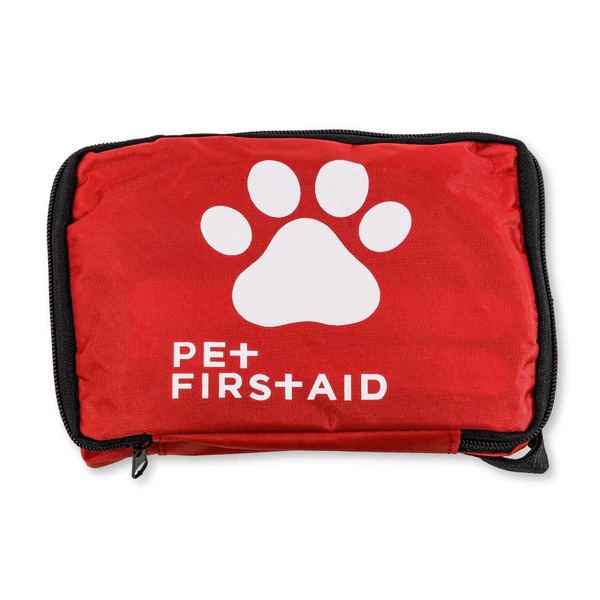Whether you’re a seasoned pet owner or just welcomed a furry friend into your home, being prepared for unexpected emergencies is crucial. A well-organized Pet First Aid Kit can make all the difference when seconds count. This article explores what essential items every pet owner should include in a kit and offers practical advice on where to store it — both at home and on the go. By understanding how to prepare and position your pet’s medical essentials, you can ensure their safety in any situation.
A Pet First Aid Kit is not just a luxury—it's a necessity. Much like a human first aid kit, it equips pet owners with the tools to provide immediate care before a veterinarian is available. From minor wounds to sudden allergic reactions, having supplies at your fingertips can help stabilize your pet and prevent complications. Pet emergencies don’t follow a schedule, and the more prepared you are, the better your response can be.

So, what exactly is a Pet First Aid Kit? It’s a curated collection of items designed to address a range of pet health scenarios. This kit typically includes wound care items, medication tools, protective gear, and basic diagnostic tools—all tailored to the unique anatomy and needs of animals. Unlike generic kits, a pet-specific kit acknowledges differences in dosing, safety, and handling. Understanding its components ensures you’re never caught off-guard.
What to Include in a Pet First Aid Kit
When assembling a Pet First Aid Kit, the goal is to create a balanced set of supplies that cover injuries, illnesses, and emergencies. Here is a suggested breakdown:
| Category | Items to Include |
| Wound Care | Gauze pads, adhesive tape, antiseptic wipes, non-stick bandages, blunt-end scissors |
| Medication Handling | Syringes (without needles), pill splitters or crushers, gloves |
| Observation & Safety | Digital thermometer (rectal use for pets), tweezers, tick remover, flashlight |
| Comfort & Restraint | Muzzle, leash, soft towel or blanket |
| Identification & Info | Pet’s medical records, vaccination history, vet contact information |
| Other Essentials | Styptic powder (for nail bleeds), saline solution, cold pack, spare collar or tag |
These tools are designed to help you provide care in different scenarios. For example, if your pet gets a cut while hiking, you can immediately clean and wrap the wound. If they eat something harmful, having information and tools to induce vomiting (under vet guidance) could be life-saving.
It’s also essential to consider the size and species of your pet when selecting items. A large dog may require different bandage sizes than a small cat. Likewise, a travel-loving pet might benefit from additional calming tools, like pheromone wipes or a familiar-scented towel.
While a DIY kit is effective, regular inspection and restocking are just as important. Always check expiration dates on medications and rotate supplies as needed. In high-temperature environments, store-sensitive items (like gel packs) in climate-controlled areas.
Where to Store Your Pet First Aid Kit for Easy Access
The best Pet First Aid Kit is the one you can reach quickly. Strategic storage is vital to ensure rapid response during emergencies. At home, the kit should be stored in a cool, dry location that’s easy to reach but away from children and pets. Think hall closets, kitchen cabinets, or a central utility area. Avoid storing in garages or bathrooms, where moisture and fluctuating temperatures may compromise contents.
It’s also wise to keep a second kit in your vehicle. If you travel frequently with your pet—whether to parks, vacations, or vet appointments—a car kit ensures preparedness on the move. This travel version doesn’t need to be as extensive but should cover basics: bandages, antiseptic, gloves, a muzzle, and updated vet records.
If your pet accompanies you on hikes or camping trips, consider a compact, waterproof version of the kit that fits in a backpack. You’ll thank yourself when you’re miles from the nearest road and your dog steps on a sharp rock.
To enhance accessibility, label your Pet First Aid Kit clearly and inform family members or pet sitters of its location. During an emergency, knowing where to find it is as important as what’s inside.
Consider these tips for optimal storage:
Preparedness isn't just about having the right tools—it's also about knowing how to access and use them swiftly. Storing the kit in a logical, known location reduces panic and speeds up response time.
By understanding what goes into a Pet First Aid Kit and how to store it effectively, you're better equipped to handle the unexpected. Every minute matters when your pet is hurt or in distress, and preparation can offer peace of mind, especially in unpredictable situations.
Pet First Aid Kit SolutionsExplore our range of first aid kits, designed with versatility and durability in mind for every pet owner. |
|
|
|
|
If you're looking for a reliable source of well-prepared, thoughtfully designed Pet First Aid Kits, consider what yonoelfirstaid offers. With a focus on functionality and pet-specific safety, they aim to simplify emergency preparation for pet owners everywhere.
Yonoelfirstaid’s product lines are developed with attention to quality, portability, and practical use—meeting the needs of pet parents who want to ensure their animals are protected no matter the setting. Whether for home use or outdoor adventures, their kits help bridge the gap between injury and professional care.